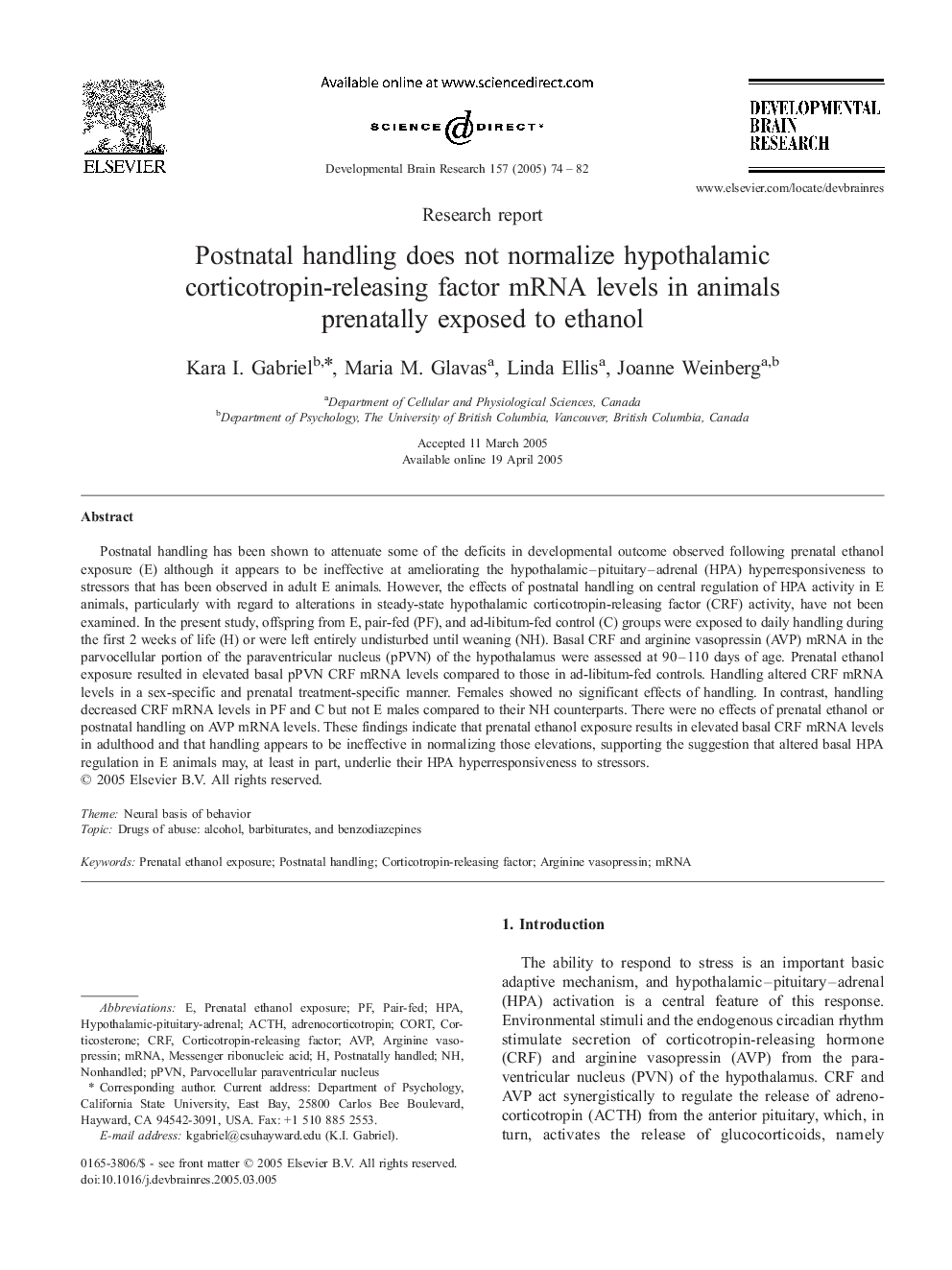| Article ID | Journal | Published Year | Pages | File Type |
|---|---|---|---|---|
| 9414571 | Developmental Brain Research | 2005 | 9 Pages |
Abstract
Postnatal handling has been shown to attenuate some of the deficits in developmental outcome observed following prenatal ethanol exposure (E) although it appears to be ineffective at ameliorating the hypothalamic-pituitary-adrenal (HPA) hyperresponsiveness to stressors that has been observed in adult E animals. However, the effects of postnatal handling on central regulation of HPA activity in E animals, particularly with regard to alterations in steady-state hypothalamic corticotropin-releasing factor (CRF) activity, have not been examined. In the present study, offspring from E, pair-fed (PF), and ad-libitum-fed control (C) groups were exposed to daily handling during the first 2 weeks of life (H) or were left entirely undisturbed until weaning (NH). Basal CRF and arginine vasopressin (AVP) mRNA in the parvocellular portion of the paraventricular nucleus (pPVN) of the hypothalamus were assessed at 90-110 days of age. Prenatal ethanol exposure resulted in elevated basal pPVN CRF mRNA levels compared to those in ad-libitum-fed controls. Handling altered CRF mRNA levels in a sex-specific and prenatal treatment-specific manner. Females showed no significant effects of handling. In contrast, handling decreased CRF mRNA levels in PF and C but not E males compared to their NH counterparts. There were no effects of prenatal ethanol or postnatal handling on AVP mRNA levels. These findings indicate that prenatal ethanol exposure results in elevated basal CRF mRNA levels in adulthood and that handling appears to be ineffective in normalizing those elevations, supporting the suggestion that altered basal HPA regulation in E animals may, at least in part, underlie their HPA hyperresponsiveness to stressors.
Keywords
CRFparvocellular paraventricular nucleusACTHpPVNmRNAAVPadrenocorticotropinpair-fedmessenger ribonucleic acidcorticotropin-releasing factorPrenatal ethanol exposureNeural Basis of BehaviorPostnatal handlingDrugs of abuse: alcohol, barbiturates, and benzodiazepinesHPAhypothalamic–pituitary–adrenalarginine vasopressinCORTCorticosterone
Related Topics
Life Sciences
Neuroscience
Developmental Neuroscience
Authors
Kara I. Gabriel, Maria M. Glavas, Linda Ellis, Joanne Weinberg,
